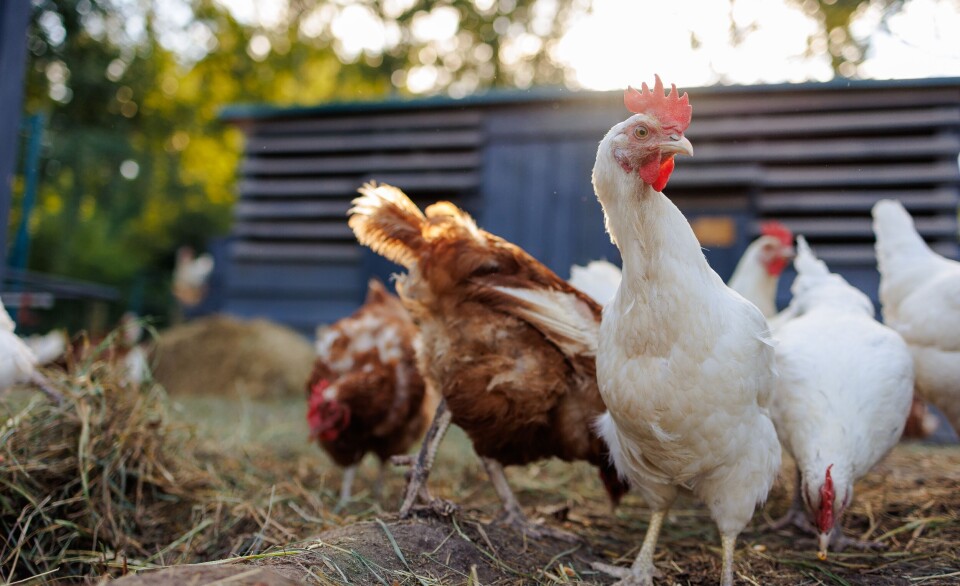-
Map: See how February rainfall compares to average in your French department
More than 30 departments classified as showing ‘extremely high’ levels of rainfall
-
A mayor in France expresses support for British woman expulsed over 'low income'
Briton ordered to leave the country after her small business failed to generate enough income in its first year
-
Pont Neuf in Paris to be transformed into the world’s largest immersive artwork
Visitors will be able to walk through the temporary installation as they cross the Seine
Video GP sessions to be launched in France
Telemedicine consultations are now reimbursed

France is taking a major step towards improving healthcare for tens of thousands of people living in rural areas as télémédecine or video-conference doctor appointments start to be reimbursed via the health service.
The change could see 500,000 patients treated by telemedicine in 2019 and 1.4 million by 2022, easing waiting lists for hard-pressed GP and specialist surgeries.
In a bid to end ‘medical deserts’ where healthcare is scarce, every French resident will be able to consult their GP médecin traitant via the internet as long as both doctor and patient agree and can access internet-linked equipment.
Video sessions cost the same as in-surgery appointments, €25 for a GP and €30 for a specialist, and are reimbursed in the same way.
However, they will not be carried out via Skype or FaceTime but through special secure video-conference links with doctors receiving a €525 allowance to help cover the required equipment and software.
Dr Jacques Lucas, vice-president of the Conseil National de l’Ordre des Médecins and digital specialist, said they were “satisfied but vigilant” over the move that “cleared away the last obstruction to telemedicine becoming commonplace”.
Nicolas Revel, head of the Caisse nationale de l’Assurance Maladie funding agency, called telemedicine an “important lever for giving easier access to care for all, especially the 18% who live in areas with few doctors”. He said telemedicine would allow earlier treatment and avoid delays for hospital care or repeat treatment.
It follows 10 years of tests and the Assurance Maladie and doctors’ unions’ deal covers video consultations and, from mid-February, télé-expertise where GPs consult with specialists for advice.
Dr Lucas said it was “a step forward, using technology to better provide a service that could help patients even in areas where health access was reduced.
“However, we must beware of private companies moving in to make money on video sessions as this would debase a principle of our health service.”
Maxence Pithon, of the student doctors’ union ISNAR-IMG, said “video GP sessions are worthwhile in opening up déserts médicaux but do not create extra hours in the day, they will take the same time but will at least cut travel time.
“The real benefit will come with télé-expertise which will be a gain in time, cutting out appointments, delays and getting treatment faster.”
Télé-expertise is aimed, initially, at long-term patients in areas with poor health cover or those in care. It will be extended later.
For video sessions, a doctor should be the patient’s médecin traitant and have their medical history. Where patients have no GP a maison de santé or similar should take them in hand and organise a video appointment.
Payment will be as now, with the same automatic reimbursement. Patients need a computer and webcam or smartphone.
Some communes are setting up consultation rooms or rooms in pharmacies with video links and, often, a nurse on hand for routine checks.
Patients ask for a consultation as normal and the doctor will send a dedicated internet link.
Several mayors have launched telemedicine units in recent years. In Picardy, 41,000 people in 24 hours viewed the Facebook post by mayor Christophe Dietrich saying Laigneville’s video-consultation room was open. By 9am the next day three people were waiting to be seen.
Mr Dietrich told Connexion nearby clinics had a fortnight’s delay: “Even I am surprised how well received this has been. People said it was easy and professional and how impressed they were with the doctors. It has made a difference!”
In Manche, the Saint-Georges-de-Rouelley mairie is opening an office which will allow residents access to a GP from the Mont-Saint-Michel group practice. It is a first for 15% of the residents who have no GP. A nurse will be present if needed.
Mayor Raymond Béchet said: “This will transform people’s lives to be able to have such ready access to healthcare.”
























